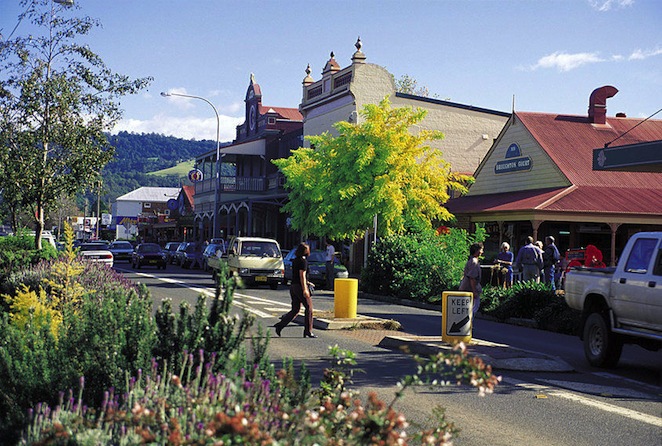Singapore
Find Eduxpress Programmes
With modern teaching tools, technology and research facilities, Singapore's universities deliver top-quality courses that nurture your creativity, innovation, and entrepreneurship. Strong links between universities and neighbouring industries also ensure relevant courses for you to gain valuable practical skills.
Singapore is an open and cosmopolitan city-state and island country that welcomes more than 86,000 international students from 120 nationalities every year. As a choice destination for advanced education, Singapore is unique in providing a safe and stimulating environment to develop the next generation of world leaders.
Singapore is known as an important business and education hub. With that in mind, it's hardly surprising that local universities are ranked among the best in the world, often earning their places in the top 15 best higher education institutions.
Universities in Singapore are especially renowned for their courses in Business and Management.
You don't need to worry about language barriers while studying in Singapore. English is spoken almost everywhere, from restaurants to banks, from public institutions to shopping centres, and so on.
According to recent data, English has actually become the most commonly spoken language in Singaporean homes.
There's no way around it: tuition fees in Singapore are high. But that shouldn't discourage you. As an international student, you can apply for government subsidies, which significantly reduce the costs of your education.
Scholarships are another excellent option to lower your expenses. You can contact the universities for more details or check out scholarship programmes on Scholarshipportal.com.
Singapore has developed a stable and healthy economy, based on a solid infrastructure and the proper implementation of modern technology. This fact makes the island city-state an attractive destination for people who want to earn high wages and enjoy a high living standard.
In 2020, for example, the average salary in Singapore was around 5,700 USD per month. So if you plan to stay here after graduation, you'll be fairly compensated for your work and knowledge.
After you finish classes, Singapore offers a wide range of activities and places where you can relax and enjoy your free time. From restaurants to parks, from museums to cinemas — it's all there, waiting for you.
We recommend visiting the Marina Bay Sands, the Gardens by the Bay, the Orchard Road, the Singapore Flyer, Sentosa Island, the Asia Civilisations Museum, etc.
Over the years, Singapore has evolved from its traditional British-based education system to one catered to the needs of individuals and nurtures talent. The strength of Singapore's education system lies in its broad-based curriculum.
Students acquire relevant skills and abilities to succeed in competitive international environments.
Universities in Singapore provide undergraduate and graduate degrees in almost any field you can imagine. You can pursue a degree in Business, Engineering, Languages, or Social Sciences.
Here are some of the most popular study options in Singapore
Higher education institutions in Singapore are divided as follows:
Singapore higher education institutions offer a wide range of education programmes to both local and international students. Private universities offer special pathway programmes dedicated to international students. Many of them include study exchange programmes through partnerships with overseas universities.
Examples of top universities in Singapore:
All universities in Singapore have a website with a simple and straightforward online application process.
You simply have to choose the degree(s) you wish to enrol in and submit all required documents.
Carefully check all the required application documents and make sure they are all translated into English. For instance, an internationally recognised Bachelor's degree or equivalent is the main requirement when enrolling for a Master’s degree at a university in Singapore.
Let's take a closer look at tuition fees and living costs in Singapore:
There is no online database with average fees at universities in Singapore. Still, international students should know that studying here is anything but cheap. Let's take the National University of Singapore (NUS) as an example:
These fees can change every year; always check the official university page to see how much you need to pay. As an international student, you can apply for a subsidy from the Singapore Ministry of Education (MOE) and significantly reduce your tuition costs.
If you enrol at a private university in Singapore be prepared to pay even higher tuition fees.
Due to the high standard of life, the costs of living are also high in Singapore. As an international student, you can spend anywhere between 700 and 1,500 EUR per month, depending on the type of housing and your lifestyle.
Here's a breakdown of average living expenses in Singapore:
Located in Southeast Asia, Singapore has a land area of about 710 square kilometres – one of the smallest countries in the world and the smallest in the region. Singapore commands an enormous presence in the world today with its free trade economy and highly efficient workforce.
Singapore is the fourth biggest commercial centre in the world, with major economic sectors in: trade, financial services, oil and petroleum refining, electronics manufacturing, biomedicine, and tourism.
Although Tamil is the main official language in Singapore, English is the main language of instruction, and also the second mother tongue for Singapore people. Singapore is home to a mix of four major communities: the Chinese, Malay, Indian, and Eurasian.
Typically, Singapore has just one season all year round, where you will experience a warm but humid weather, and many rainfalls.
Singapore is a bustling, cosmopolitan place, offering wide and diverse leisure options. From high-rise buildings, to landscaped gardens, to a vibrant nightlife and numerous shopping centres, no one can get bored in Singapore.
Here are some of Singapore’s top attractions:



